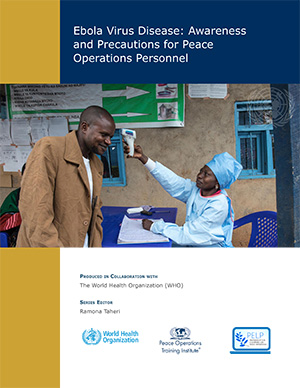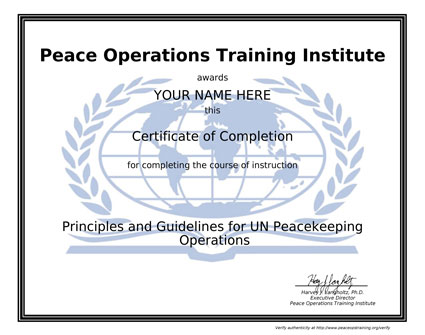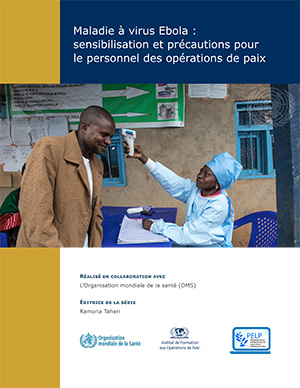This course, developed in partnership with the World Health Organization (WHO), is intended to be a general introductory primer to Ebola awareness and prevention for peace operations personnel who are not working in a medical or public health capacity. This course presents a compilation of WHO materials on general information about Ebola virus disease, how the virus is spread, the symptoms and diagnosis, infection prevention techniques, possible treatments and vaccination, mission protocol, and outbreak response coordination. Four lessons.
Número de páginas: 64 [Inglés]
Editorial: Instituto para Formación en Operaciones de Paz (POTI) [13-02-2023]


